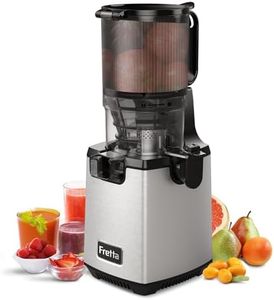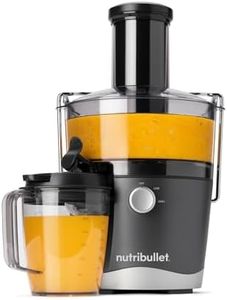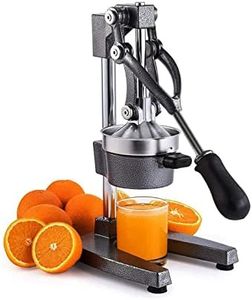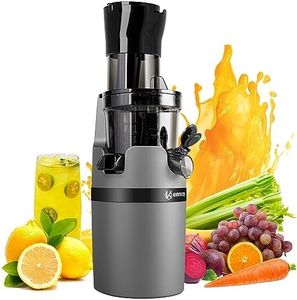We Use CookiesWe use cookies to enhance the security, performance,
functionality and for analytical and promotional activities. By continuing to browse this site you
are agreeing to our privacy policy
10 Best Affordable Juicers
From leading brands and best sellers available on the web.By clicking on a link to a third party's website, log data is shared with that third party.
Buying Guide for the Best Affordable Juicers
Choosing the right juicer can make your journey into homemade juices much more enjoyable, efficient, and sustainable. Rather than just going for the most popular or cheapest option, it's important to understand what features really matter to you. Not every juicer works best for every lifestyle or juicing habit. Some are quick and easy to use, others yield more juice but may take more time to clean. By learning about the key specs and how they affect performance, you'll be better equipped to choose a juicer that matches what you really need.Type of JuicerJuicers generally fall into a few main types, such as centrifugal, masticating (slow), and citrus juicers. Centrifugal juicers use fast-spinning blades and are great for quickly juicing hard fruits and vegetables but can be noisy and may not extract as much juice from leafy greens. Masticating juicers work more slowly, crushing and pressing produce to get higher yield and better nutrition, especially for leafy greens and wheatgrass, but tend to be bulkier and take longer. Citrus juicers are designed specifically for oranges, lemons, and the like, with a simple pressing mechanism. Think about the types of produce you'll juice most often and how much time you're willing to spend for juicing and clean-up to choose the right type.
Motor PowerMotor power, often measured in watts, determines how efficiently and effectively a juicer can process tough or fibrous ingredients. Lower power (around 200 watts) is usually fine for soft fruits and citrus, while higher power (up to 1000 watts) handles tougher produce like carrots or beets more easily. If you plan to juice harder vegetables regularly, a stronger motor is preferable; for occasional juicing or mainly citrus and softer fruits, lower power might suffice and often results in quieter operation.
Juice YieldJuice yield refers to how much juice is extracted from a given amount of produce. Some juicers are more efficient, leaving drier pulp and giving you more juice, which can mean less waste and better value over time. Masticating juicers often offer higher yields, especially with leafy greens. If maximizing juice is important to you—especially if you'll be juicing lots of vegetables or want to get the most out of costly produce—look for a model known for its high extraction rates.
Ease of CleaningHow easy a juicer is to disassemble, clean, and reassemble can make a big difference in whether you'll actually keep using it. More parts and intricate filters can mean more thorough cleaning, which some users find discouraging. Simpler designs, or models with dishwasher-safe components, are friendlier for everyday use. If you're a busy person or know that tricky clean-up will lead to the juicer gathering dust, prioritize a model known for quick and simple cleaning.
Feed Chute SizeThe size of the feed chute affects how much chopping and preparation you need to do before juicing. Wider chutes allow you to feed in larger pieces or even whole fruits and veggies, which saves time; narrower chutes require more prep but can be safer and reduce the risk of jams. If you want a fast process with less prep, a wider feed chute is handy; if you enjoy hands-on preparation, you may not mind a smaller one.
Noise LevelSome juicers, especially high-speed centrifugal types, can be quite loud, which can be a concern in apartment settings or for early-morning routines. Masticating juicers typically run more quietly, making them a better fit for noise-sensitive households. If noise is an issue in your environment, this is a spec to consider, so you can enjoy fresh juice without disturbing others.
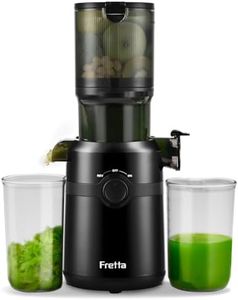

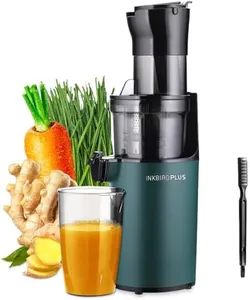
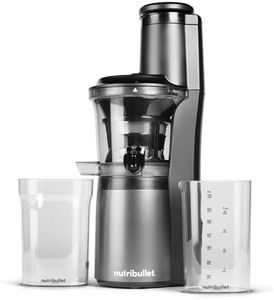
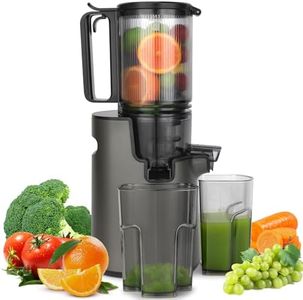
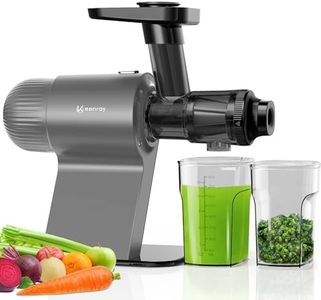

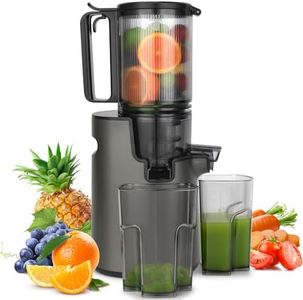
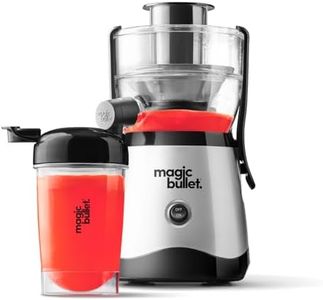
![Russell Hobbs Orange Squeezer & Citrus Juicer Electric [Left & Right Rotating, 2 Press Cones for Lemons/Oranges] Stainless Steel (Drip Stop Function, Dishwasher Safe, BPA-Free) Juicer 22760-56](https://images-proxy.bestreviews.guide/QH4t0RdsQyf-5nJ73EJ-OoSBp54=/0x300/https://m.media-amazon.com/images/I/41LsWG7bN5L._AC_CX679_.jpg)
